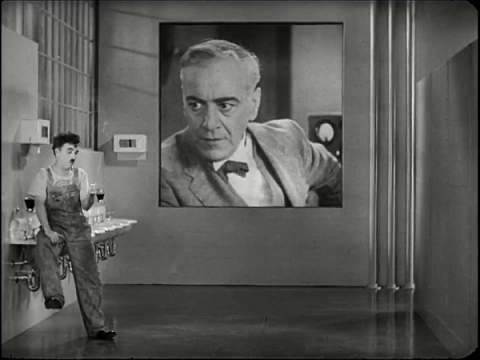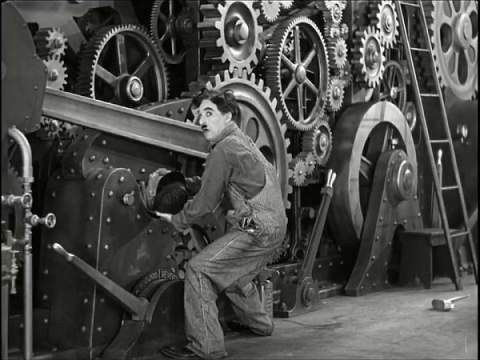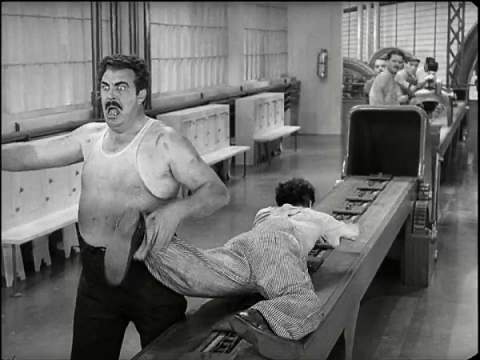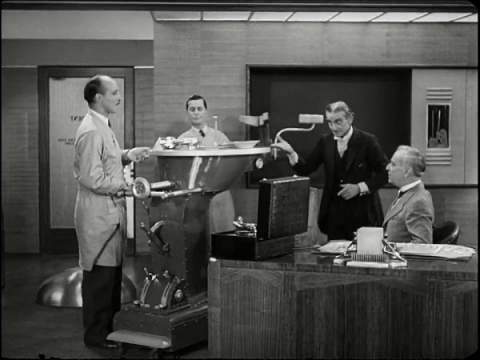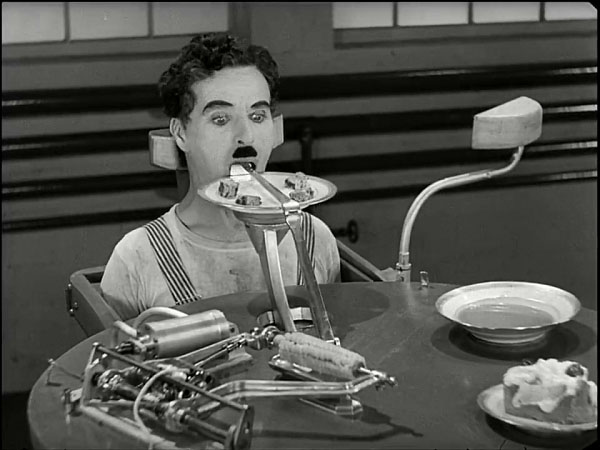
Review By Peter Gothard
Charlie Chaplin and science fiction may not seem obvious bedfellows, but the Southbank Centre’s live-scored screening of his 1936 masterpiece Modern Times was a firm reminder of how the comic genius had a vision that projected far into the future.
As conductor Carl Davis’ orchestra pumped out a note-perfect, impeccably choreographed replica of Chaplin’s original soundtrack (which he more or less wrote single-handedly), the Little Tramp’s sorry position on a clinically dehumanising factory production line is a longstanding comment on automation, big business, and the risk of humanity becoming – literally, at times- lost somewhere within it.
Apparently inspired by a conversation with Mahatma Gandhi, in which the Indian leader spoke of "machinery with only consideration of profit", Chaplin’s life in the factory is like a checklist of dystopian tropes, some of which even preceded George Orwell’s seminal 1984, while sitting comfortably next to the slightly earlier, pioneering visuals of Fritz Lang’s Metropolis.
Chaplin’s character suffers a physical and nervous breakdown from repeatedly tightening bolts on a conveyor belt – gradually sped up, for ‘productivity’ purposes, by an all-seeing Big Brother-like boss who looks out from enormous television screens. He is subject, rather against his will, to a prototypical “feeding machine”, which inevitably malfunctions and throws soup in his face while his boss and eager salesman look on and stroke their chins. In perhaps the film’s most famous sequence, he is even sucked inside the plant’s gigantic production machine, lost amongst the enormous cogs as his impulsive bolt-tightening goes into overdrive.
The majority of Modern Times is actually set outside the factory as, losing his job due to his fractured emotional condition, the Tramp experiences life unemployed on the streets, like so many of his Great Depression peers. It’s a contrast that asks (and, true to Chaplin’s typically left-leaning narrative bent, answers) whether it’s better to have a job but be consumed into a humanity-stripping corporate behemoth, or to scrape a penniless living but maintain a place in the world.
As Chaplin and his down and out companion Paulette Goddard prepare to disappear into the sunset at the film’s close, the Tramp advises her to “Buck up – never say die.”
“We’ll get along!” he says, before they both break out into beaming smiles.
As a global financial crisis still grips, and corporate machines still vie for our souls, it’s a simple truism that very much holds today.
With the addition of a live score, and the infectious atmosphere of laughing among a crowd of over one thousand, the performance presented a rare opportunity to connect with Chaplin entirely on his own terms, and experience his message unfettered by the passage of time.
Modern Times is part of the Southbank Centre’s The Rest is Noise season, which explores how war, race, sex and politics shaped the music of the 20th century. The programme runs until December 2013.
